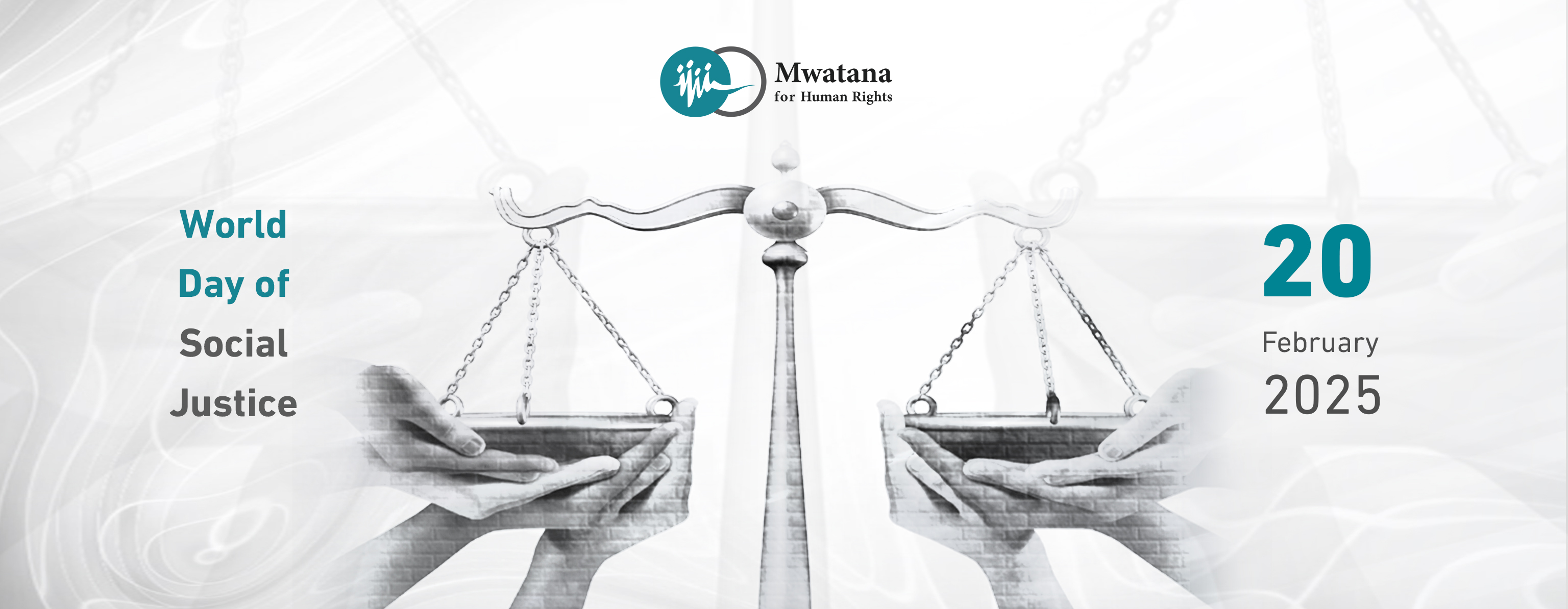
The Devastating Conflict Has Exacerbated Social Justice Gaps and Deepened Humanitarian Crises in Yemen

On the occasion of the World Day of Social Justice, observed annually on February 20, Mwatana for Human Rights stated today that a decade of armed conflict in Yemen has worsened the absence of social justice, entrenched discrimination, deepened economic and social disparities, and placed the heaviest burden of the humanitarian and economic crisis on the most vulnerable groups.
Mwatana emphasized that social justice is founded on the principles of equality, equal opportunities, and the protection of economic, social, and cultural rights for all individuals without discrimination. However, Yemenis—particularly the most vulnerable groups, including the poor, displaced persons, women, children, minorities, migrants, and civilians in general—are suffering from violations that have rendered social justice a distant dream.
Over the past ten years of war, Mwatana for Human Rights has documented violations committed by all parties to the conflict that have directly impacted social justice in Yemen, leading to rising poverty rates, widening social and economic gaps, and exacerbating the humanitarian challenges faced by civilians.
Mwatana further explained that the collapse of state institutions, weak accountability mechanisms, and the ongoing conflict have all contributed to undermining the foundations of social justice, eroding the middle class, expanding poverty, and deepening social and economic deprivation and inequality.
Radhya Al-Mutawakel, Chairperson of Mwatana for Human Rights, stated:
"As long as the armed conflict continues, state institutions collapse, and the rule of law remains absent, social justice cannot be realized amid an economy in ruins, unpaid salaries, a lack of job opportunities, and persistent discrimination against the most vulnerable groups."
She added:
"Achieving social justice in Yemen requires ending the conflict, ensuring accountability and the elimination of impunity, strengthening social protection policies, upholding the rule of law and justice, and guaranteeing equal access to essential services for all without discrimination. Yemenis—both women and men—need an environment that respects their rights, ensures equal opportunities, and protects the most vulnerable groups."
Mwatana for Human Rights called on all parties to the conflict to immediately cease all violations against civilians, particularly those that undermine social justice and erode economic, civil, and political rights. The organization also urged the international community—including the United Nations and key states—to take serious and effective measures to support peace efforts in Yemen, initiate reconstruction, provide reparations and compensation, and advance genuine transitional justice that lays the foundation for a society based on justice, equal citizenship, and the rule of law.